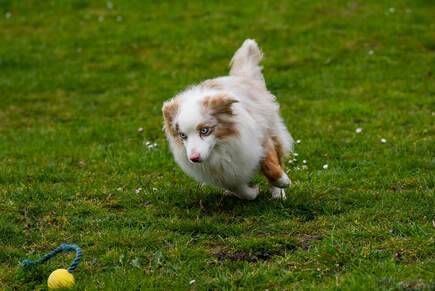|
Do you know the difference between a reward and a reinforcer? We use the term reward-based training often, but if you only reward the behaviour and your dog isn’t actually getting reinforced then the training outcome you are working towards is unlikely to be achieved.
The quick way to know if the reward is actually reinforcing the behaviour is to see if your dog is willing to repeat the behaviour. If they don’t want to repeat it – it wasn’t reinforcing! This is when we start to say that our dogs are dumb or stubborn. This isn’t correct or helpful for us to think like this. Our dogs are very intelligent but also honest. They will repeat a behaviour that is worth doing again. They are looking for rewards and reinforces in their daily life (just like us!) so why would they do something that doesn’t have any fun outcomes? How much would I have to pay you to do a job you didn’t want to? A job I hate to do is cleaning the windows of my house. So if I did it and only got a ‘thank you’ from my husband, I am less likely to want to do it again. However, if after I finished all my friends turned up and had a party, then you know what, I might be more likely to happily clean my windows more often! So in this situation, in the first instead I did get rewarded by verbal praise. However, this reward didn’t increase my desire to repeat the behaviour of cleaning my windows. In the second example, I got a wonderful evening with friends, that reward reinforced my behaviour so I am now more likely to do it again. By the way, I now pay a window cleaner as really don’t like that job and my friends don’t turn up to party after I do it 😊 Top tips to help with your training: 1 – Play more! Find out what games your dog likes. Is it tug, chase, bounce? You can build an amazing relationship with your dog once you understand their play style. Also take your games on your walks. Most of us only use games at home with our dogs and don’t think about taking this fun interaction outside. 2 – Tone of voice – be aware how you speak to your dog has an impact. If you are stern in your tone, then that ‘control’ you think you have will only last to a certain point. Who wants to do things because they are worried about the outcome if they don’t do it? At some point, the dog will choose the other more fun option such as chasing the squirrel or running with another dog. Keep it happy and light. 3 – Words – do you ‘nag’ at your dog? Keep repeating the same cue and expecting them to respond? Do you constantly ‘chat’ at your dog and just expect them to know what is chat and what words they should respond to? Make sure you are clear with what verbal cues you expect your dog to understand and respond to. 4 – Management – the old classic of using management so that you dog gets it right. Don’t set your dog up to fail – I say this a lot. If you know in certain situations your dog is likely to do the unwanted behaviour, then it’s your job to put in the management required to keep them safe and not allow them to rehearse the behaviour you don’t want them to do. Using a long line, or using a stairgate at home, these aren’t failing, these are management steps. 5 – Celebrate small wins – it’s so important in anything you are training your dog to do, to celebrate each small progression step they make. Slow and steady is the best way for your dog to learn a new skill, so make sure each step is rewarded. 6 – Natural outlets – is your dog allowed to be a dog? Do you give them appropriate outlets where possible? If you have a dog that loves to dig – have you got an area in your garden where they can dig or a sandpit filled with sand and toys to find? Do you sometimes hire a dog field and let them freely run around without worry of what you might come across? Especially useful if you have a dog that struggles around other dogs and people or a young dog that doesn’t have a reliable recall yet. Do you allow your dog to choose the pace of your walk? To allow them to stop and sniff as much as they want or even choose the direction they go? My challenge to you is to really start thinking about what your dog finds reinforcing as this really will help you with your training goals. Jo x
0 Comments
Leave a Reply. |
Archives
June 2024
|
|
© COPYRIGHT Paws4teaching 2023
Terms and conditions |




